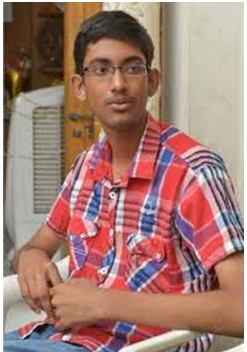JEE Advanced 2015:Time Management Tips From Sai Chetan JEE Advanced 2014 Rank 2
Top 1.5 lakh students in the JEE Main 2015 merit list across the categories will appear for the JEE Advanced 2015 exam tomorrow – on May 24, 2015. Clearing the exam will help them secure admission to the prestigious Indian Institutes of Technology (IITs). Here are some last-minute IIT JEE exam preparation tips for engineering aspirants:
- On the last day, it is not good to revise any new topics. Instead, you can try to solve full-length previous years’ JEE Advanced question papers in the prescribed three hours. You may also go through your revision notes to help you boost your confidence. Understanding the exam pattern and knowing what type of questions to expect comes in very handy during the exam. For revision, emphasize on application-based chapters.ÂÂ
- Aditya Singhal, Director of Transweb Educational Services Pvt. Ltd, says, “Different sections included in the IIT JEE papers in the last few years have included:
- Straight objective-type MCQs with single correct answer,
- MCQs with multiple correct answers,
- Assertion based questions,
- Reason based questions,
- Linked comprehension based MCQs,
- Integer answer type questions which have one digit numeric answers, and
- Matrix match type questions which have two columns to be matched with each other.
According to him, it is important to understand the importance of each of the sections and have a strategy about the order in which you will solve these sections.
- Class 12 boards, JEE Main and JEE Advanced exams are all different exams with different set of rules, ranking systems and exam patterns. However, their syllabus remains largely the same. So, if the students have prepared well for the first two exams, it will be easier for them to tweak the preparation for the JEE Advanced exam too.
- JEE Advanced requires greater amount of comprehension, reasoning and analytical skills to solve problems. With different types of questions and two papers of three hours each, candidates are grilled well to evaluate their abilities desired by IITs. Try solving two papers from 9 am to 12 pm, and 2 pm to 5 pm today (on May 23) – and prepare your mind and body for the marathon tomorrow.
- It is very important to divide your time wisely between the three subjects in the exam. Assign 45 minutes to each subject during the exam – and try to solve as many problems as you can. Use the 30 minutes you have in the end to work on problems that you found difficult in the first go.
- Do not spend too much time working on a single problem. Solving two easier questions in that time can earn you double marks!
Tips from Topper:
Sai Chetan, who had All India Rank (AIR) #2 in JEE Advanced 2014, shares, “I was weak in Organic & Inorganic Chemistry, so I devoted more time to these two sub-subjects. For Inorganic Chemistry, I used NCERT textbook while for Organic Chemistry, I relied on my class notes. For Physical Chemistry, I concentrated on theory too.
Throughout my JEE preparation, I made sure to maintain a balance between Maths, Physics and Chemistry preparation. I devoted three hours for Math, three hours for Physics and five hours for Chemistry daily.
I solved Math questions daily as a practice session. For all the subjects, I made short notes of all the formulae and important concepts chapter-by-chapter which proved to be incredibly useful for last-minute revisions. Electrodynamics and Optics in Physics turned out to be the most important chapters in the 2014 exam.
To increase my speed and accuracy level, I started with solving few easier questions in Physics and Math and then went on to solve as many previous years’ JEE Advanced and IIT JEE papers as I could.
In the last days of the exam, I focused on revising chapters I was already good at, instead of trying to digest the difficult ones. “
- Excited
- Fascinated
- Amused
- Bored
- Sad
- Angry

